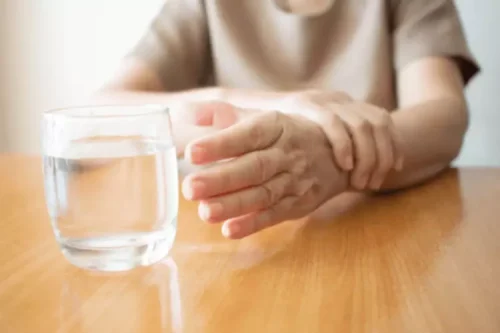
Understanding Alcohol Drinking Patterns National Institute on Alcohol Abuse and Alcoholism NIAAA
Central Palms Hotel
This is fun for anyone who doesn’t want to drink or who can’t drink. But when I heard about the concept of a breakfast shot, it sounded so delicious and fun, I had to give it a try. You may feel more anxiety, a little less relaxed, what is it like to be drunk until you get the hang of it.
Learning Center
Unearth the hard truths with the latest heroin addiction statistics & facts, impacts, and prevention tactics. Dive into intriguing plastic surgery statistics & facts, exploring trends, social media influence, and future outlook. Explore the link between addiction and financial problems, from income loss to treatment costs. Discover tips for staying sober on Thanksgiving, from mindful practices to navigating social gatherings. Watching a loved one struggle with addiction can be heart-wrenching.
What Is Mental Health Awareness Month?
Some common physical signs include slurred speech, lack of coordination, and bloodshot eyes. If you or someone you know is struggling with alcohol addiction or needs assistance, reach out to a healthcare professional or seek help from specialized organizations. To recognize signs of alcohol intoxication, it’s crucial to be observant and familiar with these physical cues.
Embracing Fear in Recovery: Strength in Vulnerability
- Binge drinking, defined as consuming large amounts of alcohol in a short time, can rapidly overwhelm the body’s ability to process alcohol.
- One might say that this person has a “high tolerance” for alcohol.
But in her experience, “most people are open to doing something that doesn’t revolve around alcohol. They just don’t want to organize it because it takes effort.” Here are five common social conundrums you might encounter in a no-alcohol month — and how to cope. Gooch, who https://ecosoberhouse.com/ has been sober for seven years, knows now that this reaction comes from a societal belief that drinking makes you more fun and interesting.
How Alcohol Affects the Body

Several factors influence how drunk you feel and how your body processes alcohol. Another consequence of alcohol use is possible legal issues, such as being caught driving marijuana addiction under the influence of alcohol (DUI). This may also cause people to stay home and drink alone, increasing their isolation.
- This is fun for anyone who doesn’t want to drink or who can’t drink.
- Discover if length of stay makes a difference in drug and alcohol addiction treatment.
- Alcohol is the most normalised and glamorised drug on the planet.
How to Stop Spending Addiction?

They may drink alone or disguise alcoholic beverages in public settings. The Nutty Professor drunk undergoes a dramatic personality shift when intoxicated. Usually reserved individuals may become outgoing and talkative, while typically confident people might become shy or introspective. Their elevated mood can be infectious, making them popular drinking companions. However, their judgment may still be impaired, leading to potentially risky decisions. Researchers found that alcohol tends to amplify existing personality traits rather than creating entirely new ones.
The 4 Stages Of Alcoholism For The Functioning Alcoholic: A Path To Addiction
- The joy, the confidence, the lowered inhibitions — that’s all the alcohol talking.
- The severity of slurred speech and lack of coordination can vary depending on factors such as the amount of alcohol consumed, individual tolerance, and other personal factors.
- Does your teen have unsupervised access to their prescription meds?
- Conversation may flow more easily, inhibitions may further decrease, and individuals may feel a sense of confidence and well-being.
- Planning safe transportation and setting clear boundaries before drinking can help mitigate risks.
Usually a man will start to feel tipsy after consuming 2 to 3 alcoholic drinks in an hour. A woman will feel tipsy after consuming 1 to 2 alcoholic drinks in an hour. The problem is that when I’m having a good time after one glass of wine, I often want to maximize that feeling by ordering one more. Even when I limited myself to two drinks per occasion, those cocktails added up when I went out four times a week.
- When it comes to the levels of intoxication, several factors play a role in determining how alcohol affects an individual.
- It might also be best for these individuals to avoid excessive drinking.
- Luxury powerhouse LVMH’s liquor division, Möet Hennessy, recently invested in a minority stake in the nonalcoholic wine brand French Bloom.
- The alcohol content in a beverage and the rate at which it is consumed significantly impact the level of intoxication.
- The way you feel changes depending on how much alcohol you’ve consumed, how fast you drank it, and your body’s individual reactions.
Medical Disclaimer
However, the signs and symptoms of alcohol use disorder can present themselves in other ways. Dove Recovery can help ensure that your treatment and recovery occur in a controlled, safe manner. One of the ways this is done is by a carefully monitored cessation of alcohol to control the symptoms of alcohol withdrawal. There are other factors, such as loss of control of alcohol consumption and a preoccupation or hyper-fixation of the act of drinking, that contribute to cravings as well. For males, consuming alcohol in moderation is limited to two drinks or less per day, and for females, it is one drink or less per day.
How Long Are Drug Rehab Programs

As intoxication progresses, confusion and disorientation may become more apparent. Alcohol affects the brain’s ability to process information efficiently, leading to difficulties in concentration, memory recall, and problem-solving. As a result, individuals may struggle to maintain a coherent train of thought or comprehend their surroundings. Alongside the heightened confidence and sociability, the consumption of alcohol also impairs coordination and judgment. Alcohol affects the central nervous system, slowing down brain activity and interfering with fine motor skills. Grasp the difference between detox vs rehab, understand their role in recovery, and make informed decisions.

The person who is only drinking a little each hour is better able to filter the alcohol out of the blood. This allows them to either maintain a certain level of intoxication or give their body a chance to get rid of the alcohol. Remember, responsible drinking is about making informed choices, respecting personal limits, and prioritizing your well-being and the safety of others. By understanding your boundaries, employing strategies for safe drinking, and seeking help when needed, you can enjoy alcohol responsibly and minimize potential risks. It’s important to reach out to trusted friends, family members, or healthcare professionals who can provide guidance and assistance. There are also various support groups and resources available that can offer valuable information and support for individuals seeking to reduce or quit drinking.